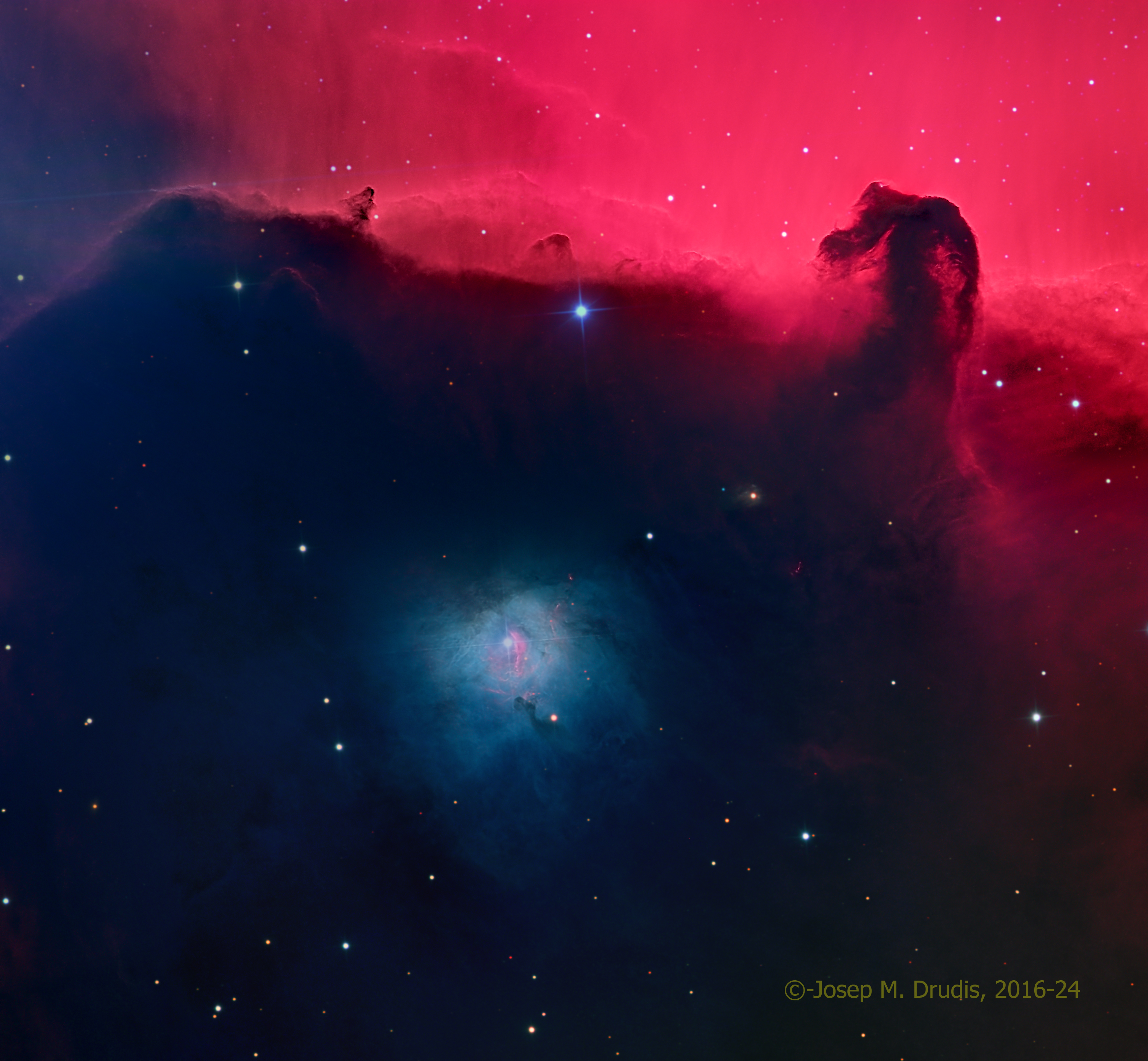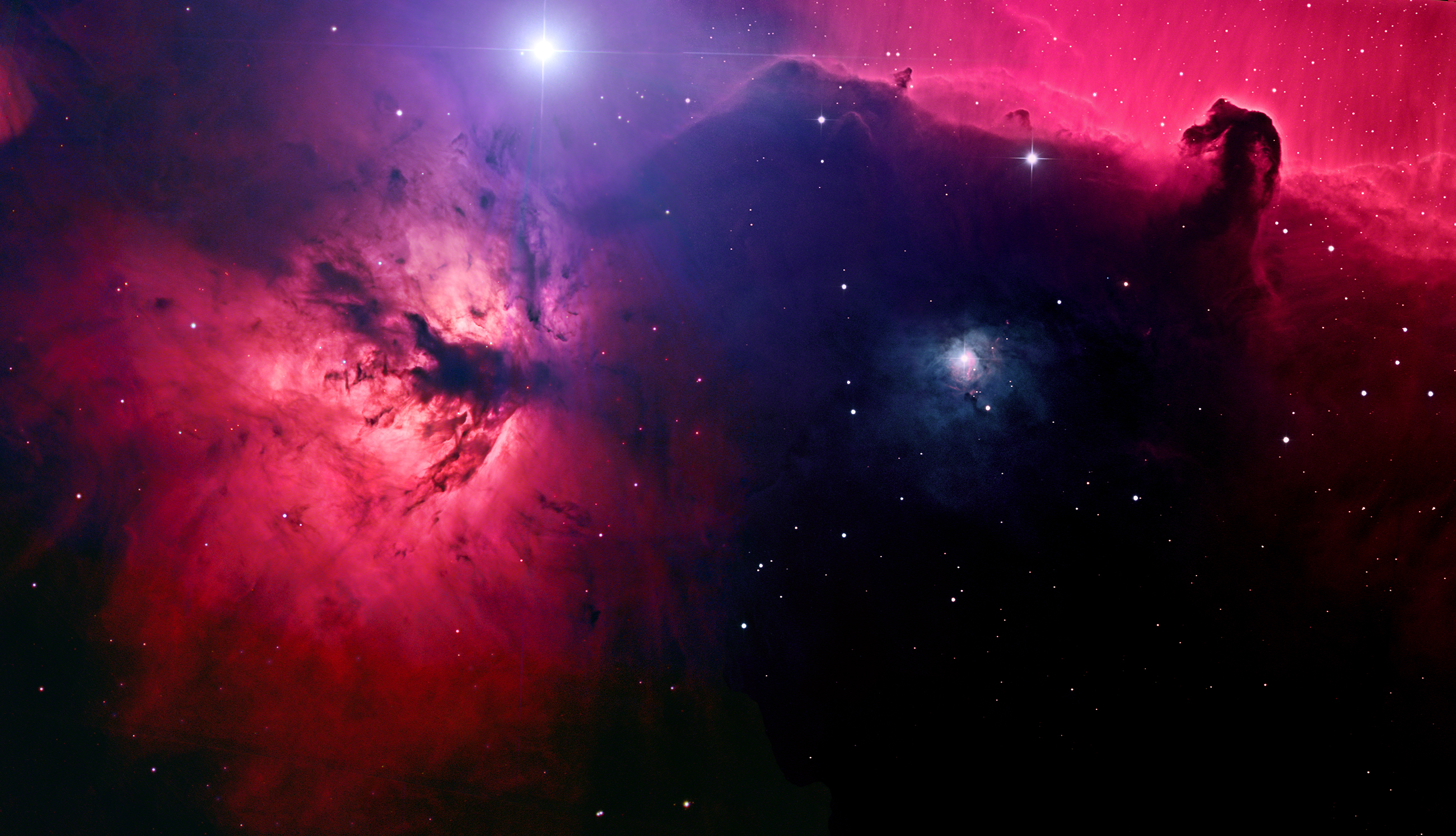

Click on any of the images for a full resolution version
This is 1×2 mosaic of an extremely beautiful area (around M 42, the Orion Nebula) and often “visited” by astrophotographers around the world. NGC 2024 (also known as the Flame Nebula) is the nebula sitting on the left hand side of this mosaic. It is an emission nebula that is better imaged with Halpha. IC 434 (on the right) is a bright red emission nebula, with Barnard 33, a dark nebula (better known as the Horsehead Nebula) superimposed in front of it, showing a seahorse head shape, more than a horse (but some people disagree). The blue-colored nebula just right off of center is NGC 2023, a reflection nebula with minor emission lanes (in red) that is aesthetically very nice, but often overlooked due to its spectacular neighbors.
Additional Information
Object
Name(s): NGC 2024-Flame Nebula; IC 434-Horsehead Nebula; NGC 2023
Type: Emission/Dark/Reflection Nebula
RA: Mosaic centered at 05h 41m 40s
Dec: Mosaic centered at -02º 10’ 30”
Constellation: Orion
Size (arcmin): NGC 2024: 30×30; IC 434: 60×10; NGC 2023: 10×10
Magnitude: NGC 2024: 10; IC 434: 7.3; NGC 2023: 10
Distance: NGC 2024: 1500 ly; IC 434: 1500 ly; NGC 2023: 800 ly
Image
Date: Many nights between 2015-10-25 and 2016-02-14
Location: iTelescope.net, SSO near Coonabarabran, NSW Australia
Size (arcmin): 64×33
Telescope: Planewave CDK 20” f/6.8
Camera: SBIG STX16803 (4096x4096pix)
Guiding: Astrodon MonsterMOAG off-axis guider
Total exposure: 38.5 hours (48 L; 64RGB; 25Halpha) 5 OIII frames were taken to help reduce the tremendous blue glare from Alnitak.
Processing: CCDStack, Photoshop CC 2016 and PixInsight